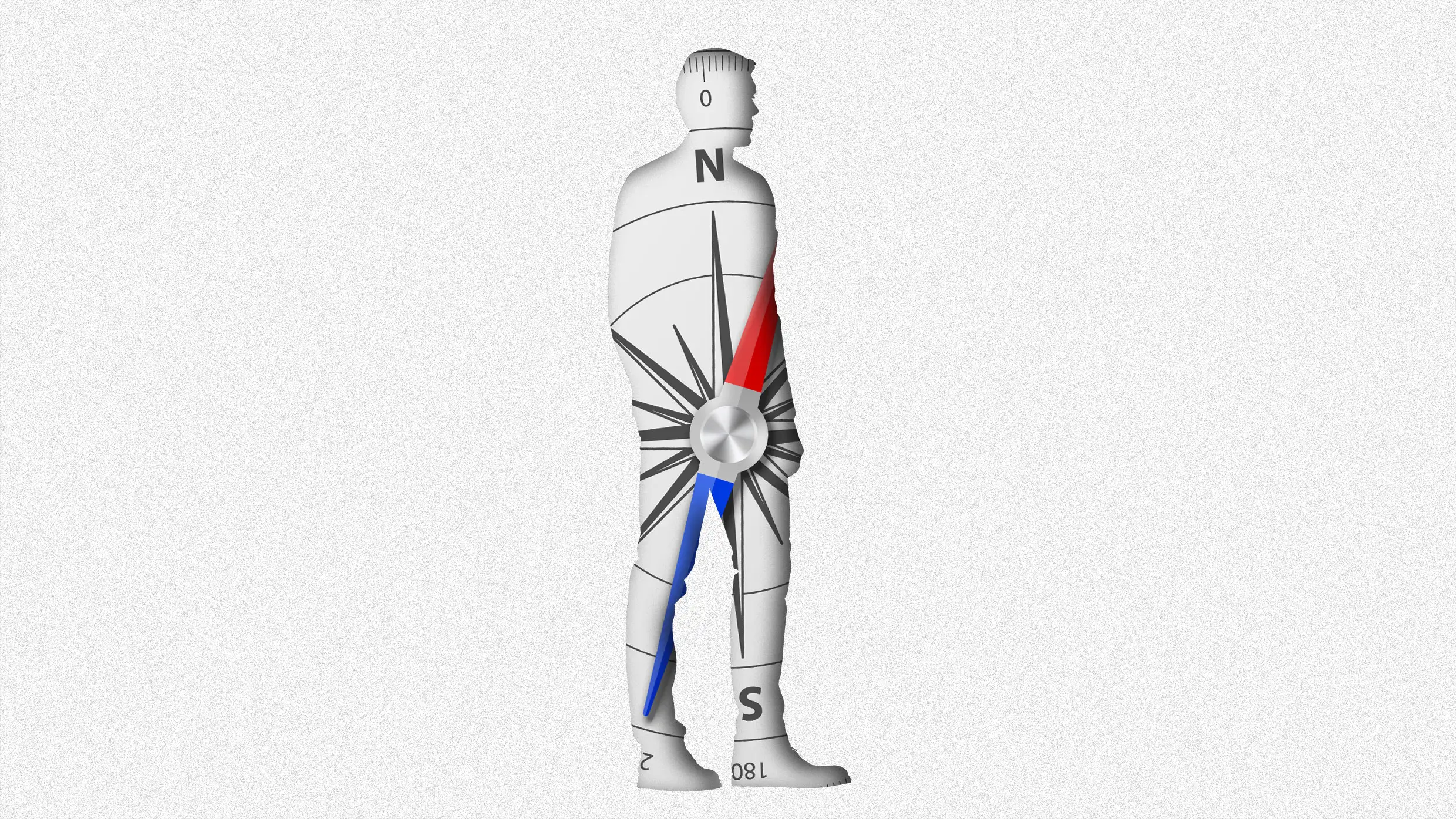#job search
#job search
[ follow ]
#job-search #networking #layoffs #career-advice #linkedin #career-transition #unemployment #recruiting #ghost-jobs
Careers
fromBusiness Insider
2 days agoAvoid these 3 mistakes after a layoff, career coach says
After a layoff, avoid posting negative content on LinkedIn and venting to former colleagues; instead, wait to reframe the experience positively and maintain professional relationships for future job opportunities.
fromwww.socialmediatoday.com
1 week agoLinkedIn Launches New Campaign for LinkedIn Premium
LinkedIn is looking to make a bigger push on its Premium subscription packages this year, as it continues to build on its revenue options, and complement its ad business. Its latest promotion for Premium highlights the benefits of the add-on package in helping people find jobs, by highlighting some of the reasons why people might want to move on from their current role. LinkedIn's new promotional series uses humor to appeal to job seekers, and get them to consider signing up.
Marketing tech
fromHer Campus
3 weeks agoNavigating Marketing Internships: Where to Go, What to Do, and How to Find What's Best for You!
As college students, we have all felt the stress and confusion around the conversation of summer internships: what do I want to do? Am I qualified for anything? Where do I start, and how do I apply? These are all the questions I, as well as most students, have when thinking about potential internships. It's easy to get overwhelmed. So, let this be a guide for where to go, what to do, and how to, hopefully, find your dream internship for the summer!
Higher education
Careers
fromBusiness Insider
4 weeks agoI couldn't find a job after college, so I became a nanny. When I started working with a wonderful family and making $30 an hour, all my fears melted away.
Choosing full-time nannying after struggling in the traditional job market provided financial stability, personal fulfillment, and improved work-life balance.
fromPsychology Today
1 month agoHow to Get Unstuck
Whether it's something personal like physical fitness, or something professional like finding a new job, we all get stuck from time to time. And once you do, the ability to pull out of that place and take productive steps forward can be incredibly hard. At the same time, once you get moving again (physically or otherwise) that same inertia can keep you going, even when there are lots of obstacles standing in your way.
Careers
fromBusiness Insider
1 month agoI'm 7 months postgrad and still job hunting. I'm leaning on my hobbies to help overcome imposter syndrome.
I always expected life after college would fall seamlessly into place, that all of my involvement in campus media, internships, and good grades would pay off immediately. So, when I learned that my childhood friend was planning to move to New York City, it was the perfect opportunity to take the leap together. I'd always dreamed of moving there, and as the home of many big-name publications, it seemed like the right city to be in to kick-start my career.
Mental health
fromBusiness Insider
2 months agoI lived in Europe for 7 years before returning to the US. Here are 3 things I did right and 3 I wish I'd done differently.
When it came time to pack, I slowly deconstructed my apartment over the course of a month. I made endless trips to the thrift store, posted on Facebook Marketplace, and even hosted a move-out party where I made snacks for my friends while they raided my closet. After all that, I still found myself frantically sitting on my suitcase, trying to zip it right up until my ride to the airport arrived.
Mental health
Health
fromBusiness Insider
2 months agoI burned out from 2 years of job hunting, so I changed everything about how I apply. I won't let the job market break my spirit anymore.
Excessive daily job hunting and loss of work-life structure led Kirsten Bradford to severe burnout, prompting lifestyle and job-search discipline changes that aided her recovery.
Careers
fromThe Globe and Mail
2 months agoHow can this 32-year-old photographer get back into the industry after a retail detour?
Tailor Chris Brown's portfolio and skills to industry-specific digital marketing needs, emphasizing short-form video (TikTok), measurable e-commerce results, and role-relevant experience.
fromBusiness Insider
2 months agoI got laid off from Meta as a 'low performer' and can't find a job
When I got hired at Meta in 2020, it was life-changing for me as a single mom. It represented safety and stability - a place to work hard at and retire from. So, when I was let go in February in a round of layoffs aimed at "low-performers," it felt like a punch in the gut. Nine months later, my severance and savings have run dry, I'm struggling to find a tech job, and I feel that the low-performer "label" is part of the reason.
Venture
Careers
fromBusiness Insider
3 months agoFrom Microsoft to mailman: How struggling job seekers are explaining their part-time gigs - or hiding them
Job seekers who take part-time or unrelated gigs struggle whether to list them on résumés and must explain extended full-time employment gaps.
Careers
fromLondon Business News | Londonlovesbusiness.com
3 months agoTired of not getting that promotion? Consider this - London Business News | Londonlovesbusiness.com
Track measurable achievements and proactively pursue external advancement when internal promotion stalls to secure deserved raises and career growth.
fromBusiness Insider
4 months agoI designed a custom GPT that helped me land 7 interviews and a job offer from PayPal - here's how
At the start of my job hunt, I reached out to recruiters on LinkedIn, but personalizing each message took a lot of time. I tried using ChatGPT to draft messages, but it kept making mistakes. I realized that, on ChatGPT, I'm not just chatting about my job search; I'm also chatting about recipe ideas, workout plans, budgeting, and travel itineraries. When ChatGPT would give me an answer, it would often get mixed up or provide generic answers that weren't customized to me.
Artificial intelligence
Startup companies
fromTechCrunch
4 months agoJack & Jill raises $50 million to bring conversational AI to job-hunting | TechCrunch
Jack & Jill uses conversational AI to streamline recruitment by replacing noisy job-board applications with AI interviews and employer matching; launched with $20M seed funding.
Mental health
fromFortune
4 months agoJeff Bezos says stress comes from 'ignoring things you shouldn't be ignoring,' not from hard work: 'You can be working incredibly hard and loving it' | Fortune
Stress arises from avoiding addressable problems; initiating small actions reduces stress even before problems are resolved.
fromFast Company
4 months agoCompanies ask candidates for references. Why can't candidates ask companies for the same?
So why can't the same thing be done in reverse-where you can ask past employees to assess the company you're applying to? Sure, there's Glassdoor. But short of salty ex-employees publicly dragging old employers on social media-a relatively uncommon move, considering it's deemed unprofessional and may result in legal retaliation-there are no real formalized processes to run references on a company you're applying to.
Careers
fromFast Company
4 months agoIs your resume making you sound desperate?
Creating a standout résumé or cover letter is your first (and sometimes only) chance to make a strong impression with prospective employers-to really sell yourself. But there's a caveat, HR experts say: don't sound desperate. While we're taught to tailor résumés for the job and really showcase accomplishments, experts argue there's such a thing as going overboard. Employers could find it off-putting. Or worse, they could think you're overrepresenting your credentials.
Careers
fromBusiness Insider
5 months agoA Gen Zer explains how he navigated Amazon's 5-hour 'loop' interview and landed a job with no connections
Based on his research and conversations with friends who'd gone through the process, Kumar said he expected the background check to take no more than 15 days - but day 20 passed, then day 25, with no update. The company doing the background check told him the delay was tied to his lack of prior work experience in the US, which complicated the process.
Silicon Valley
fromFast Company
5 months agoBurned out from the job hunt? Read this for motivation
I've been on the hunt for a new gig for a large chunk of this year, and it feels like I've seen it all. I've watched some appealing job listings be pulled down within hours, while others sit stagnantly for months. I've heard tales of scammers trying to dupe job seekers; legit employers advertising phantom roles to collect talent data and present an illusion of company growth.
Careers
fromFast Company
5 months agoJob seekers are getting hired faster-for these careers in particular
The job search company's latest quarterly survey of U.S. workers who started their job within the last six months suggests Americans are getting more comfortable with the uncertainty in today's job market. Also, they are more likely to remain at their current positions (tending toward so-called job hugging), leading new employees to take a "more cautious and strategic approach to their career moves."
Careers
fromBusiness Insider
5 months agoI worked for 20 years at companies like Tesla and Wells Fargo. Now, I'm DoorDashing to support my daughters.
I started out in sales at 18, pounding the phone at a mortgage brokerage, and I've been working in sales since, at companies like Tesla, Wells Fargo, and Securitas Technologies. About two weeks short of Christmas last year, I got laid off. Now I haven't been able to get a full-time sales position for nine months. I've been applying for a minimum of 10 to 15 sales positions a day, and I've had about six interviews.
Careers
[ Load more ]




















